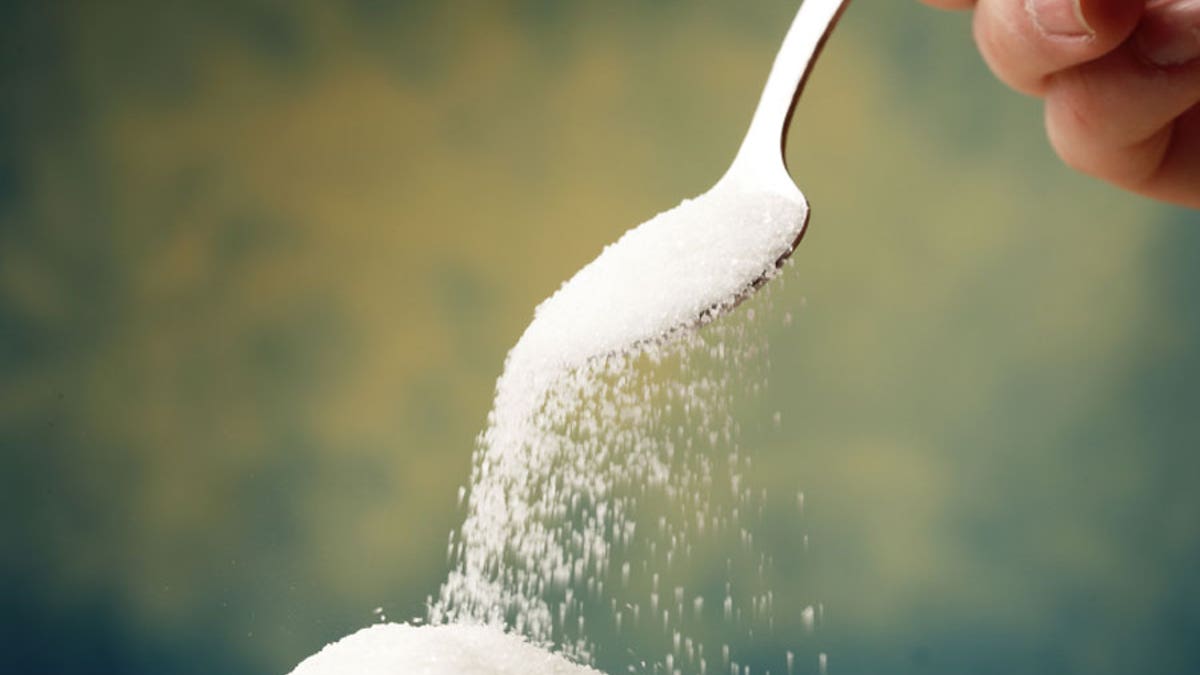
(iStock)
Sugar is so harmful to public health it should be controlled like alcohol and cigarettes, U.S. scientists claim.
Researchers from the University of California-San Francisco said Wednesday that the public's excessive consumption of sugar not only is contributing to a global obesity pandemic but also is critically altering people's hormones, metabolism and blood pressure and causing "significant damage to the liver."
In an article entitled "The Toxic Truth About Sugar," published in the journal Nature, the scientists said that sugar consumption tripled worldwide over the past 50 years and now is contributing to 35 million deaths a year.
"As long as the public thinks that sugar is just 'empty calories,' we have no chance in solving this," Dr. Robert Lustig said. "There are good calories and bad calories, just as there are good fats and bad fats, good amino acids and bad amino acids, good carbohydrates and bad carbohydrates. But sugar is toxic beyond its calories."
The researchers said that the effects of consuming an excess of sugary foods and drinks mimic the effects of drinking too much alcohol -- which, they pointed out, is made from distilling sugar.
They recommended using taxation, controlling access to sugary products and tightening licensing requirements to sell sweet snacks and drinks in schools and workplaces.
The American Beverage Association said it feels the authors' comparison of sugar to alcohol and tobacco is without scientific merit.
"There is no evidence that focusing solely on reducing sugar intake would have any meaningful public health impact,” the ABA said in a statement. “Importantly, we know that the body of scientific evidence does not support that sugar, in any of its various forms – including fructose, is a unique cause of chronic health conditions such as obesity, diabetes, hypertension, cardiovascular disease or metabolic syndrome.”
The Sugar Association agreed with the ABA.
“The alleged consumption assumes total supply equals human consumption,” the Sugar Association said in a statement. “Total supply includes the amount sold for food plus what is allotted for unsold inventory.”
“Second, when the comment authors used total supply amounts to estimate consumption, they disregard the fact that reliable estimates of consumption require total supply
amounts to be reduced by processing losses and consumer waste (estimated at 29 percent in the U.S.), the practice used by the U.S. Department of Agriculture. During the same time that consumption of cane and beet sugar was decreasing, the obesity epidemic, which the authors cite as a “marker” for the metabolic dysfunctions that lead to many of these non-communicable diseases, increased.”
The Sugar Association said it feels the authors are being irresponsible by using their platforms to scare people – especially when using words like ‘diabetes’ or ‘cancer.’
Dr. Laura Schmidt, who was involved in the research, said, "We're not talking prohibition. We're not advocating a major imposition of the government into people's lives."
She added, "We're talking about gentle ways to make sugar consumption slightly less convenient, thereby moving people away from the concentrated dose. What we want is to actually increase people's choices by making foods that aren't loaded with sugar comparatively easier and cheaper to get."
NewsCore contributed to this article.




















